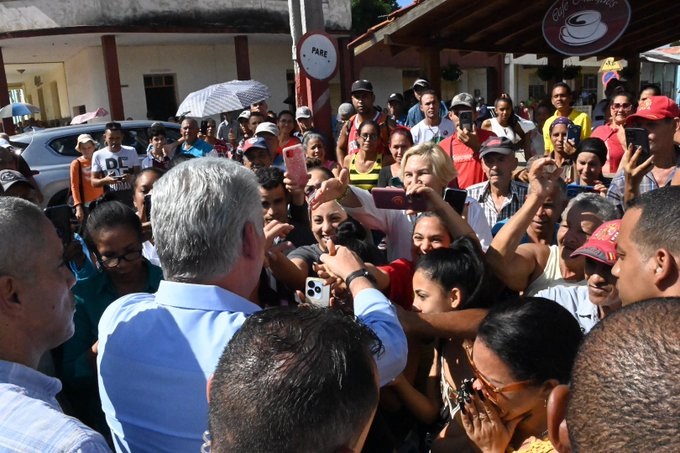The head of State’s journey began in the rural community of Victorino, where he met with residents who were waiting for him outside the family doctor’s office, the first healthcare institution created by the Revolution in the area.
People’s Council President Reinaldo Rodríguez explained to Díaz-Canel that they cultivate coffee and the process precious woods in the region.
They also produce various crops to ensure the population’s self-sufficiency, according to the Presidency of the Republic on X.
There are 78 economic and social institutions and 23 settlements in the community. When talking with the residents, the president commented on the objectives of these tours throughout the country, which have the purpose of multiplying the good experiences in different sectors.
Accompanied by the Secretary of Organization of the Central Committee of the Communist Party of Cuba, Roberto Morales, Díaz-Canel also visited the Pilón de Victorino coffee pulper, where he learned that some 8,500 cans of coffee are processed annually, which is equivalent to 11.5 tons, ten of which are of high-quality organic coffee.
The head of the pulper plant, Ismael Cruzata Tamayo, explained to the president that the center’s work has been affected by sustained rains over the last few weeks, as well as by the shortage of labor for the harvest.
The third stop on the president’s agenda was the Guisa agroforestry experimental station, which is in charge of the genetic improvement of forests and coffee, in addition to fighting the various pests that damage the crops.
Shortly before concluding his visit to Guisa, Díaz-Canel met with residents about their impressions of the municipality, “a land of beautiful landscapes full of history.”
jg/ro/mks









